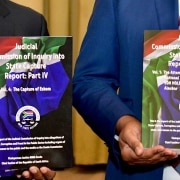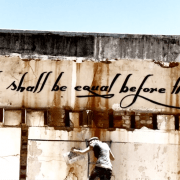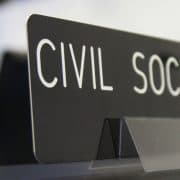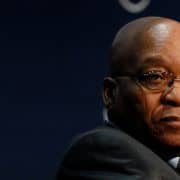|
Getting your Trinity Audio player ready...
|
Dictionary.com’s word of the year for 2017 is complicit.
Complicit means “choosing to be involved in an illegal or questionable act, especially with others; having partnership or involvement in wrongdoing.”
Simply put, it means that even if you not are directly involved in such wrongdoing, you can be complicit indirectly if you know that someone is doing wrong and you are capable of stopping them but do not take those steps.
Dictionary.com names its word of the year based on the year’s most meaningful events and word lookup trends. “We chose our Word of the Year, in part, because of noteworthy stories of those who have refused to be complicit,” the dictionary said. “In the face of oppression and wrongdoing, this refusal to be complicit has been a grounding force of 2017.”
The word complicit has this year been used in relation to those who speak out against powerful figures and institutions and about those who stay silent. In terms of the global cultural and political landscape, what does it mean to be complicit in 2017?
The public needs to know
The first spike in searches for complicit, says Dictionary.com, was on 12 March, the day after Saturday Night Live in the US aired their satirical ad featuring Scarlett Johansson playing Ivanka Trump, hawking a perfume called Complicit. This scent was marketed as “The fragrance for the woman who could stop all this, but won’t.” There was a 10 000% increase in daily average lookups. On 5 April there was an even bigger spike – an 11 000% increase – after an interview with the real Ivanka Trump, in which, asked if she and her husband Jared Kushner are complicit in the actions of her father, she responded: “If being complicit is wanting to be a force for good and to make a positive impact, then I’m complicit.”
In South Africa, we have our own examples. State capture did not happen because of the actions of one man, or a small group of corrupt people. It happened because along the way there were hundreds and thousands of people who saw what was going on and for various reasons, did not report it. These people are all complicit because directly or indirectly, they contributed to the state of affairs that we are grappling with today.
For instance, the national director of public prosecutions, Shaun Abrahams, has been seen as complicit in helping President Jacob Zuma avoid corruption charges which have been hanging over Zuma’s head since 2009. As a result, Abrahams is known derisively as Shaun The Sheep.
Despite these apparent indications to the contrary, Abrahams has described himself as “nobody’s man” and stated that he did not intend “using my power to protect anybody.”
This year also brought forth allegations of sexual assault against powerful men such as former film executive Harvey Weinstein, and others were inspired to come forward with their own stories. The point is that these men did not work in a vacuum. They could not have got away with it for so many years without complicity – of their associates, and possibly their friends and families.
The other side of the coin
Just as there are some who are complicit, there are many who refuse to be complicit to oppression, corruption and wrongdoing. Across the world, 2017 has been a year of protests and action, from the five-million who participated in the worldwide Women’s March for human rights on 21 January, to the Bell Pottinger/Gupta scandal and the subsequent downfall of that PR company, due in large part to sustained outrage and pressure from the South African public.
South Africans, like their counterparts around the world, are voicing their anger, resulting in high-profile resignations from both the public and private sectors,
In fact, says Dictionary.com, the third biggest spike in searches for the word complicit was in response to a refusal to be complicit, which happened in the US on 24 October. Arizona Senator Jeff Flake, a Republican, announced his retirement, saying: “I have children and grandchildren to answer to, and so, Mr. President, I will not be complicit.” He urged fellow members of the party to speak out because “silence can equal complicity.”
But this is not always the case, argues Dictionary.com. “We also must consider the very real reasons why we choose not to speak out. This includes fear of retaliation, fear of endangering one’s safety or the safety of loved ones, or knowledge that nothing will change. Silence may come from a place of self-preservation. Those whose lives have been negatively impacted by assault or violence or social injustices don’t owe their stories to anyone. It’s important to remember that sometimes speaking out is a privilege in itself.”
Yet we must reflect on our own behaviour, asking ourselves if there were times when we could have spoken out … and didn’t? Did we go along with something because it was the path of least resistance?
The word of the year is not only about what is visible, Dictionary.com says. It reminds us that inaction is also a type of action, and that the silent acceptance of wrongdoing has resulted in the situation that we face today. “We must not let this continue to be the norm. If we do, then we are all complicit.”








